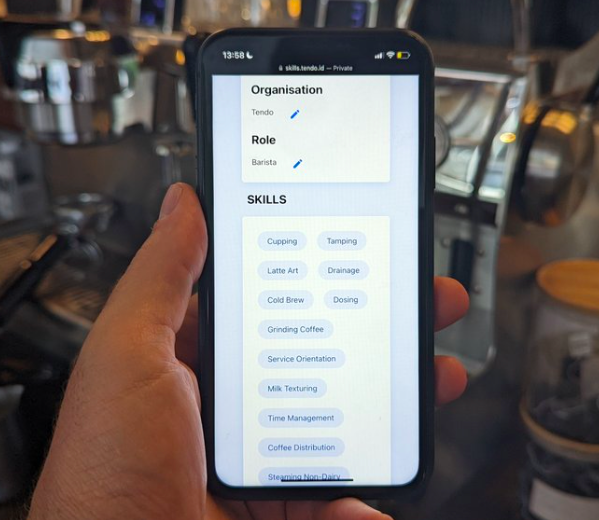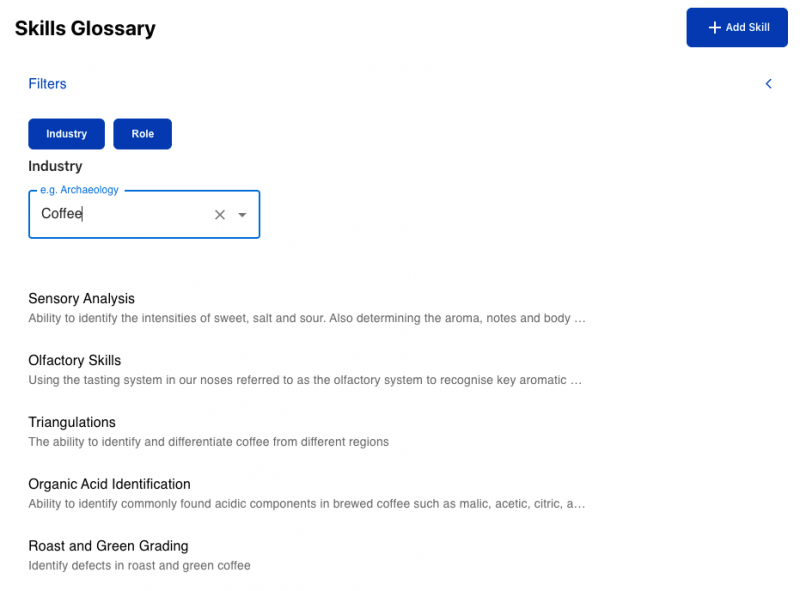This is an amazing tool to unpack all the skills that are actually expected of a barista on a daily basis. Not just pouring the perfect latte art! This is a really interesting tool to reframe how we see the role of barista and how important it is to coffee businesses.

To help coffee shops and baristas navigate career progression in the sector, we’ve published a Coffee Skills Glossary as evidence of the application’s potential as a place to grow a career.
Tendo’s Coffee Skills Glossary provides free resources, including 75+ coffee skills and 20 transferrable skills that any coffee employee can access on their phone. Each skill is linked to a succinct definition provided in-house by Tendo specialists and independent collaborators from the coffee industry. Anyone can add, define, edit or validate a skill, creating an open forum for dynamically improving the accuracy and value of terms.
“I’ve been working in the coffee sector for more than 15 years but when I was starting out it was almost impossible to find information about my work as a barista,” says Melanie Weldert, Barista and Quality Controller at roaster Rösttrommel Kaffeeröstrerei in Nuremberg, Germany. “The information I needed was on different internet pages or in books that were out of date. I’m fascinated by Tendo’s work on the Skills Glossary for the simple fact that it’s a simple and easy-to-use tool. What’s more, it’s relevant not only to baristas, but also to skilled employees in Gastronomy.”
The Coffee Skills Glossary is a solution to the problem of competency recognition, introducing skills as a currency. Skills are contained in an employee-owned skills wallet and simultaneously shared with employers in a granular learning and development dashboard. Skills are currently available in English, with Q3 plans to translate them into Spanish and introduce voice recordings to cross the literary divide.
“The Skills Glossary allows employers and employees to converse around skills, first at the point of interview then later when thinking about reviews and promotion,” says Tendo founder and former coffee shop manager Will Ross. “Training and development will always require coaches, curriculum, and work-based reinforcement. Concrete terms and definitions empower employees to have constructive, open conversations with their managers about internal mobility. By ensuring instant, bottom-up attainment, we aim to turn learning into a culture, not merely an obligation.”
By using the glossary, coffee producers, roasters and coffee shops can illuminate the breadth of interoperable skills available within their operations. Moreover, they can ensure an efficient transmission of talent throughout the sector.
